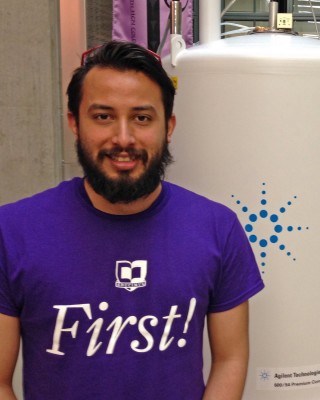Jose Martinez ’13
I was born in Hood River, Oregon, and lived there until about the age of 4 when my family moved to Vancouver, Washington. At that time, my father worked as a construction worker and my mother took care of the kids (five of us, me being the middle child). My family lived there until I was about 11 and we moved to Houston, Texas, due to my father’s job.

In Texas, my father would occasionally take my brothers and me to work with him where we would dig foundation lines for houses in the hot blistering sun. I lived in Texas until I was 12 and then my family moved back to Hood River, Oregon. My father continued to work in construction. As my siblings and I got older and were able to care for ourselves, my mother began working at a nearby hotel as a waiter and moved up to a banquet server. Walmart purchased the land we lived on so all the people who lived in our trailer park had to move, and my family relocated to Dallesport, Washington, where I went graduated high school as valedictorian and left for Cornell College.
I currently live in Evanston, Illinois, and am a chemistry Ph.D. student at Northwestern University and a second year student in the Wasielewski group. My main focus is developing photodriven CO2 reduction catalysts that are light-driven to transform CO2 into liquid fuels, a vital component to the USA’s energy development (as was proclaimed by President Barack Obama during his 2014 speech at Northwestern University). Outside of the program I am a member of Northwestern’s Triathlon team and collegiate Super Smash Bros Melee club. I am also a mentor for the Niles West Mentorship Program at Niles West High School. In this mentorship program I volunteer my time as a mentor to a particular student who is working on high-level, independent research projects. They then present this work at local, national, and international science competitions.
Cornell gave me the skills needed to succeed as a chemist. I was able to take what I learned in classes, as well as lab, that were instilled by the nurturing faculty to other universities and conduct research. These lessons ultimately gave me the skills that have transferred over to my graduate program. Outside of academics, Cornell gave me the skills to analyze not only the problems that I faced, but to look deeper into issues other people harbored.
At Cornell, Professor Charley Liberko allowed me to drive his car to a neighboring high school so that I could perform chemistry demonstrations to young Girl Scouts. Professor Craig Teague helped set this up after my ride to the high school fell through. I look back on this moment as I think it portrays the type of connection students at Cornell College develop with their faculty that other students at other universities do not get.


